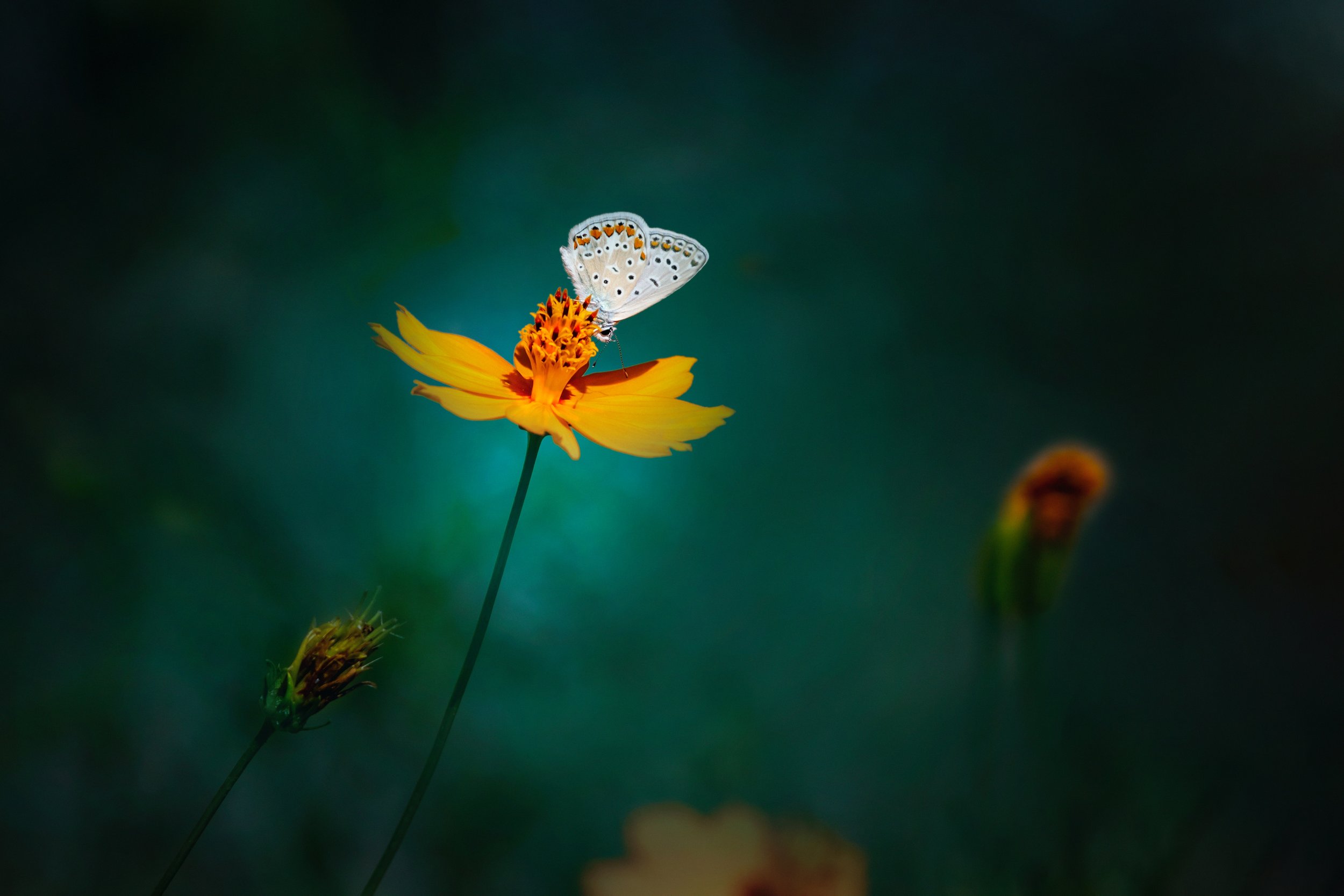Our Work
Our work highlights the research and insights of our community. Share your contributions by collaborating with ASO here. Subscribe to our free newsletter here.

Time as an element in the curriculum at The Royal College of Music
This month we release an article by Judith Kleinman exploring the evolution of Alexander Technique (AT) at the Royal College of Music (RCM), focusing on Time as a crucial element in student learning. Integrated into RCM's degree programs and available as individual lessons, AT has been offered since the 1960s, with group classes starting in 1991. The curriculum has evolved gradually through observation, analysis, and iteration. Emphasizing Time enhances students' understanding of presence, reaction, and time flow, vital for musical performance and personal development.

Restoring carers to themselves through the Alexander Technique
In this video, Charlotte Woods and Lesley Glover from ASO discuss an article co-authored with dementia expert Emma Wolverson, that explores how the Alexander Technique, even when learned for unrelated reasons, can unexpectedly improve one's ability to provide care. They touch on the embodied nature of caring, interoception and autonomy, "self-loss" among carers, and conclude by discussing implications for academics and the Alexander community.

Opera and Alexander Technique: What are the connections?
This month we explore the unique challenges that opera places on the human voice as we delve into connections between Opera and the Alexander Technique (AT). Led by Gabriella Minnes Brandes, six video clips and written text explore research, process, practice, and performance in real-time with opera singers Shana White and Brittany St. Claire. Join us for this insightful journey and the open intersection of worlds in which AT supports sound quality, embodied awareness, and dynamic performance.

An Interview with Monika Gross: Alexander Technique Research & Collaboration
Welcome to the 34th edition of the ASO newsletter. In this issue, we feature an illuminating interview with Monika Gross (The Poise Project) that revolves around crucial aspects such as bridging communication gaps between the Alexander Technique and other fields, amplifying public awareness of the profession, and establishing meaningful connections with research groups and healthcare practitioners.

Why research the Alexander Technique?
This month, ASO (Alexander Studies Online) introduces its first podcast-style post titled "Why research the Alexander Technique?" Join us for a discussion with the members of the Society of Teachers of the Alexander Technique Research Group (SRG) as they explore how curiosity, challenges, and practical insights from research on AT can relate to one's personal explorations and practice.

Soma in the City: How does listening and responding to a ‘somatic podcast’ drawing on the Alexander Technique, affect one’s relationship with urban space?
This month we present a summary of research by Korina Biggs undertaken as part of her M.A. in Dance and Somatic Well-Being at the University of Central Lancashire. The study drew on the Alexander Technique and aimed to connect somatic perceptual/movement practice with challenging urban environments, exploring the potential of digital technology to deepen the connection to one's psychophysical self and surroundings.

Why have a curriculum for an experiential practice?
This month we release an article by Judith Kleinman that explores how a curriculum can act as a flexible tool to support Alexander Technique teaching, foster professional development and communication with other fields, and enrich the learning journey of the student.

Lighten Up! A conversation with Rajal Cohen - Part II
Following up on last month’s research on the effects of postural instructions on people living with Parkinson’s and on healthy older and younger adults. This month, we share a two-part conversation with Rajal, where she discusses the research and introduces a new project, Posture Underground.

Lighten Up! A conversation with Rajal Cohen - Part I
This month shares the background research to an upcoming conversation with Rajal Cohen, M.AmSAT, Ph.D., about a series of three papers she and colleagues published on the effects of postural instructions on people living with Parkinson’s and on healthy older and younger adults.

Embodied practices, the Alexander Technique, and self-compassion: An interview with Lisa Harris
“Can embodied practices, on their own, affect self-compassion?” This month we release an interview with Lisa Harris MSc, MSTAT about her unique MSc thesis which is entitled "An Exploration of Embodied Movement Practices as a Route to Self-Compassion”.

‘What on earth do we do with this data?’ Two experiences of writing up research for publication
This post introduces two new research articles based on the same data set but which adopted quite different approaches to writing up for publication. The papers are titled: Extending understanding of ‘care’ as an embodied phenomenon: Alexander Technique teacher perspectives on restoring carers to themselves, and ‘I am teaching them and they are teaching me’: Experiences of teaching Alexander Technique to people with dementia.
Archive
-
2025
- Jun 7, 2025 Capturing Well-being Outcomes: The Warwick Holistic Health Questionnaire and Its Relevance to Alexander Practice Jun 7, 2025
- May 3, 2025 Connected Conversations: Exploring the Space Between – Alexander Technique and Craniosacral Therapy Practice May 3, 2025
- Apr 5, 2025 Alexander Technique, Gender, and Embodied Empowerment Apr 5, 2025
- Mar 4, 2025 Rethinking The Science of Muscle Tone - Part II Mar 4, 2025
- Feb 4, 2025 Rethinking The Science of Muscle Tone - Part I Feb 4, 2025
- Jan 7, 2025 Bridging Practice and Research: Insights for Alexander Technique from Acupuncture Care and Research Jan 7, 2025
-
2024
- Dec 3, 2024 ASO Annual Review - 2024 Alexander Technique Research & Insights Dec 3, 2024
- Nov 5, 2024 Capturing Experience: Exploring Self-Report Measures in Alexander Technique Research Nov 5, 2024
- Oct 1, 2024 Exploring the Wisdom of Senior Teachers: Ruth Rootberg on 'Living the Alexander Technique’ Oct 1, 2024
- Sep 3, 2024 Putting the body back into prayer Sep 3, 2024
- Jul 2, 2024 Time as an element in the curriculum at The Royal College of Music Jul 2, 2024
- Jun 4, 2024 Part II - How can learning and using the Alexander Technique enable us to reduce and better manage chronic pain? Jun 4, 2024
- May 7, 2024 How can learning and using the Alexander Technique enable us to reduce and better manage chronic pain? May 7, 2024
- Apr 2, 2024 In Conversation: Regina Stratil's Path to Uncovering Irene Tasker's Story Apr 2, 2024
- Mar 5, 2024 How Alexander Technique lessons can help family carers - Part II Mar 5, 2024
- Feb 6, 2024 Partnering with Poise – Research into how Alexander Technique lessons can help family carers Feb 6, 2024
- Jan 2, 2024 Acoustic and Perceptual Effects of Alexander Technique Lessons Jan 2, 2024
-
2023
- Dec 5, 2023 A Year of Exploration: Annual Review & Research Discoveries Dec 5, 2023
- Nov 7, 2023 Restoring carers to themselves through the Alexander Technique Nov 7, 2023
- Oct 3, 2023 Opera and Alexander Technique: What are the connections? Oct 3, 2023
- Sep 5, 2023 An Interview with Monika Gross: Alexander Technique Research & Collaboration Sep 5, 2023
- Jul 4, 2023 Why research the Alexander Technique? Jul 4, 2023
- Jun 6, 2023 Soma in the City: How does listening and responding to a ‘somatic podcast’ drawing on the Alexander Technique, affect one’s relationship with urban space? Jun 6, 2023
- May 2, 2023 Why have a curriculum for an experiential practice? May 2, 2023
- Apr 4, 2023 Lighten Up! A conversation with Rajal Cohen - Part II Apr 4, 2023
- Mar 7, 2023 Lighten Up! A conversation with Rajal Cohen - Part I Mar 7, 2023
- Feb 7, 2023 Embodied practices, the Alexander Technique, and self-compassion: An interview with Lisa Harris Feb 7, 2023
- Jan 3, 2023 ‘What on earth do we do with this data?’ Two experiences of writing up research for publication Jan 3, 2023
-
2022
- Nov 1, 2022 Alexander Technique group lessons in an exercise program for women following treatment for breast cancer: An Interview with Alazne Larrinaga Nov 1, 2022
- Oct 4, 2022 A New Alexander Technique Publication in the British Medical Journal on Low Back Pain: An Interview with Carolyn Nicholls Oct 4, 2022
- Sep 6, 2022 The Healthy Young Musician Project: Alexander Technique Research at the Royal Academy of Music Sep 6, 2022
- Aug 2, 2022 Violin, Science, and the Alexander Technique: An Interview with Researcher Alison Loram and Special Guests Aug 2, 2022
- Jul 5, 2022 Is it time to take stock of Alexander Teacher education? Research offers the means whereby. Jul 5, 2022
- Jun 7, 2022 A Technique for Musicians Jun 7, 2022
- May 3, 2022 Psychological and other ‘non-physical’ changes following Alexander Technique lessons May 3, 2022
- Apr 5, 2022 Finale - Working With Musicians: Application of The Alexander Technique to Music Making Part III Apr 5, 2022
- Mar 1, 2022 Working With Musicians - Application of The Alexander Technique to Music Making Part II Mar 1, 2022
- Feb 1, 2022 Working With Musicians - The Application of The Alexander Technique to Music Making Part I Feb 1, 2022
- Jan 4, 2022 One year into the Alexander Studies Online project - how are we doing? Jan 4, 2022
-
2021
- Dec 7, 2021 How Women Use The Alexander Technique In The First Year After Birth Part III Dec 7, 2021
- Nov 2, 2021 How Women Use The Alexander Technique In The First Year After Birth Part II Nov 2, 2021
- Oct 5, 2021 How Women Use The Alexander Technique In The First Year After Birth Oct 5, 2021
- Sep 7, 2021 Building a new, open-access database of Alexander Technique research. Sep 7, 2021
- Aug 3, 2021 Looking both ways: A new teacher’s perspective on uncertainty Aug 3, 2021
- Jul 20, 2021 ATLAS commentary Parts III and IV Jul 20, 2021
- Jul 6, 2021 ATLAS commentary Parts I and II Jul 6, 2021
- Jun 1, 2021 Potential Mechanisms of the Alexander Technique: Toward a Comprehensive Neurophysiological Model Jun 1, 2021
- May 4, 2021 ATEAM Commentary Part II May 4, 2021
- Apr 5, 2021 ATEAM Commentary Part I Apr 5, 2021
- Mar 2, 2021 Learning from People Living with Parkinson’s Disease: Ten tips from the field Mar 2, 2021
- Feb 2, 2021 Disciplined inquiry and the Alexander Technique teacher: What is it, why do it? Feb 2, 2021
- Jan 27, 2021 Pt. II of Supporting People with Dementia: a Role for Alexander Technique Teachers? Jan 27, 2021
- Jan 27, 2021 Pt. I of Supporting People with Dementia: a Role for Alexander Technique Teachers? Jan 27, 2021
- Jan 5, 2021 The ASO Newsletter - 2nd edition Jan 5, 2021
-
2020
- Dec 1, 2020 The ASO Newsletter - 1st edition Dec 1, 2020
- Oct 18, 2020 Welcome: An Overview of ASO Oct 18, 2020